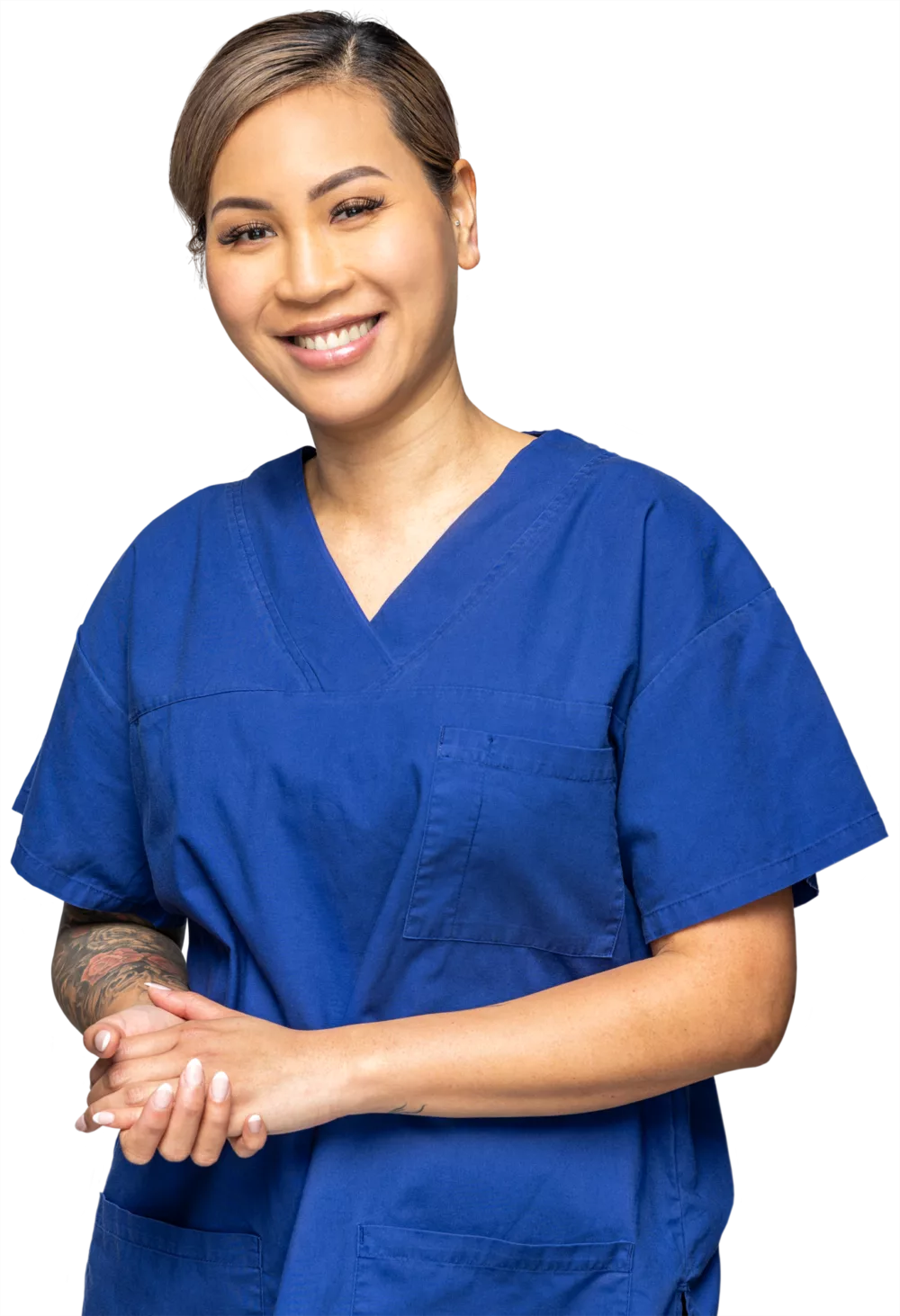Sperm donors change lives!
Becoming a sperm donor is a simple process, and it means so much to the families we can help.
To be a donor you must be able to make regular visits to our donation clinics located in Auckland, Hamilton, Wellington, Dunedin, and Christchurch.
We have both clinic donors and personal donors:
- a clinic donor is recruited by the clinic to donate to someone they don't know personally.
- a personal donor is someone who is donating to someone they know - often a friend or family member.
Become a clinic sperm donor
- aged between 20 and 45 years
- have a good sperm sample, (we will test this along the way)
- be a New Zealand resident
Become a personal donor
We recommend the same criteria, but depending on circumstances, you can be out of this range.
Apply to be a sperm donor today!
Here's what your journey to be a sperm donor will look like:
Step 1: Fill in our online form. You're one step closer to making a difference!
Step 2: Let's check your sperm and genetic health. We'll analyze the count, motility, morphology, and DNA fragmentation of your sperm. We'll also screen for inherited conditions with a simple saliva sample.
Step 3: If you're eligible, we'll send you a Medical and Family History questionnaire via email. Your health matters!
Step 4: Blood and urine tests are essential to ensure your safety and the recipient's well-being. We'll also determine your blood group.
Step 5: Meet our doctor and counsellor. They'll discuss your results, perform a physical examination, and guide you through the laws and implications of sperm donation in New Zealand.
Step 6: Our medical team will review your case and confirm the next steps. Sperm banking or other options await!
Step 7: Sign a Consent to Donate, complete a non-identifying profile, and start banking your sperm. Your generosity will touch lives!
Step 8: The final countdown! Clear all screening tests and undergo a 3-month quarantine for utmost safety before your sperm becomes available to recipients.
Sperm donor application
FAQs for sperm donors
What is the difference between a clinic donor and a personal donor?
- A clinic donor is recruited by Fertility Associates and does not choose who receives his sperm samples. Recipients get given the option of different donor profiles to select from.
- A personal donor is usually recruited by a patient of Fertility Associates who require donor sperm. This may be a family member, friend, or someone found personal advertising.
You can be both a clinic and a personal donor. We recommend you discuss with your personal recipients if you are also considering being a clinic donor.
What are the criteria for becoming a clinic sperm donor?
- You must be a New Zealand resident to be able to donate as a clinic donor.
- You must be aged between 20-45.
- Your semen analysis tests must meet the minimum requirements as per the WHO guidelines and references for semen quality, (we will test this along the way).
What are the criteria for becoming a personal sperm donor?
- You do not have to be a New Zealand resident to be able to donate to a personal recipient.
- We recommend that you are aged between 20-45, but depending on circumstances, you can be out of this range.
- We recommend that your semen analysis tests meet the minimum requirements as per the WHO guidelines and references for semen quality, however, you may still be able to donate to a personal recipient if it is lower.
Who can I donate to?
Donor sperm may be used for a variety of people in various ways. For instance, recipients may be heterosexual couples, single women, male or female same-sex couples, transgender people, or overseas patients having treatment at Fertility Associates. IVF treatment may also include the use of donor eggs or surrogacy.
You can place restrictions on the use of your sperm that may include any of the groups of patients mentioned above or other groups of patients, any type of treatment, or any scenario. However, we encourage donors to be inclusive in who they donate to.
How many people can I donate to?
Fertility Associates has a maximum limit of 7 recipients who can have children using your donated sperm. You can choose a lower limit with a minimum of 2 as a clinic donor.
How often can I donate?
You can donate as often as you like, provided you have a 2-3 day gap (abstinence) between samples. As a clinic donor, we appreciate the commitment to the process and for you to complete your donations within a 6-month time frame.
The number of samples required will be determined by the quality of each sample and the type of treatment your samples are suitable for. The donor coordinator can give you an indication after your initial semen analysis.
Do I get paid?
In New Zealand, it is illegal to pay for or give “valuable consideration” for sperm donation. Fertility Associates can pay travel expenses for clinic donors and these are paid to you after the final clearance tests. If you need to fly to appointments, please obtain prior approval from Fertility Associates.
What tests are performed?
At your initial appointment with Fertility Associates, we will assess your semen quality. For this we do a count, check the motility (movement) and check the morphology (shape) of your sperm, and send a small sample for an SCSA test to check DNA fragmentation (damage).
The sample will also be frozen and thawed to determine what treatment it would be suitable for. Some samples may be suitable for donor insemination (DI) while others will require IVF with Intra-cytoplasmic sperm injection (ICSI).
We will also take a saliva sample that will be used for genetic screening. Genetic testing identifies whether an individual is a carrier of a range of inherited conditions. Being a carrier increases the chance of a child being conceived with that condition. Many people are carriers of a genetic condition, even though no one in their family has the condition.
For more information on genetic screening visit the Invitae website.
What if my semen analysis results are not good?
If your semen analysis tests do not meet the minimum requirements as per the WHO guidelines and references for semen quality, we will offer you the opportunity to discuss this with a Fertility Associates doctor in terms of what that means for your own future fertility.
What does it mean to be an identifiable donor?
Under the HART Act, all men donating sperm after 22 August 2005 are required to be identifiable. After the age of 18 years, a child may ask the clinic or the Registrar-General of Births, Deaths, and Marriages for the identity of the donor and this information will normally be given.
The child may ask for the identity of other children conceived using the same donor. There are provisions for children getting information from the age of 16 years and for parents to obtain information about the donor, too.
A donor may ask for the identity of all persons born as a result of his donation. If the parents of a child who is under 18 years of age consent to this, the information will be given. If the person is over 18 they have the right to consent or not.
I have a partner and/or children of my own, can I donate?
Yes, you can. We feel it is very important that if you have a partner, that they know all about the issues involved with donor insemination, especially around being identifiable. They are also asked to sign your consent form, which states that they are aware that you are a donor and that they have available to them the same information and services that are offered to the donor.
Because of these issues, the clinic will try to give you as much information as you need and offers you the services of our counsellors, whose job is not to assess your suitability, but to help you in your decision-making and to give you the opportunity to explore the implications of being an identifiable donor in the future. You will meet with one of our counsellors around the time that you see the doctor and you may request to see a counsellor at any other time.
What is the legal position of the donor?
The Status of Children Act (2004) clearly defines the legal status of the donor, the woman’s partner, and the child when conception occurs as a result of donor insemination, and the woman has undergone the procedure with the consent of her partner. The woman’s partner at the time of birth, whether by marriage, civil union, or de facto, is a legal parent of the child. Neither the child nor the donor has any rights or liabilities in relation to each other.
What communication between donors and recipient families might occur?
With a child’s best interests at the forefront, most parents intend to share the information of how a donor helped them to become a family – with their children and often their wider family. Some parents and children ask if they can communicate with the donor and sometimes enjoy sending letters and photographs. The clinic coordinates any exchange of information and supports donors by offering appointments with our counsellors who have knowledge, resources, and experience around issues raised by having contact. When donors do receive information about recipients, we ask that they respect the confidentiality of the information. We will not release any information beyond the standard set of non-identifying information without your consent.




